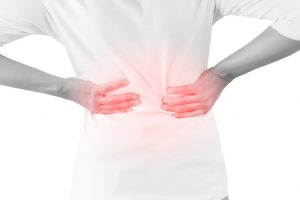
There are two different types of kidney cyst: polycystic kidney disease (PKD) and simple kidney cysts. PKD is a genetic disorder with an unknown cause.
Causes of kidney cysts
The exact cause of kidney cysts is not fully understood. One theory suggests the kidney cyst develops due to a weak spot on the kidney (diverticulum). The pouch fills with fluid, detaches and thus becomes a cyst.
Another theory believes kidney cysts may be caused due to an obstruction of the tubules, which are related to the collection of urine.
Cysts found in polycystic kidney disease are almost always noncancerous and do not cause many problems. Affected individuals may even go their entire lives without knowing they have the condition. Cysts are thin-walled, small oval, or round sacs filled with watery fluid.
Polycystic kidney disease: A disorder that is characterized by clusters of fluid-filled sacs, called cysts, within the kidney. Cysts may also be found elsewhere in the body. Complications of polycystic kidney disease include high blood pressure, pain, urinary tract infections, liver cysts, and kidney failure due to progressive function loss. Treatment of this disorder often involves managing the complications.
Medullary cystic kidney disease (MCKD): An inherited condition that can result in cyst formation in the inner part of the kidney called the medulla. This condition often causes kidney failure in people between the ages of 20 to 50.
Medullary sponge kidney: Characterized by cyst development in the urine-collecting ducts and tubules of one or both kidneys. The condition is thought to be mainly inherited, but the exact cause for medullary sponge kidney is not known.
Symptoms of kidney cysts
Often, simple kidney cysts are symptomless but if the cyst grows large enough you may encounter the following symptoms:
- Dull pain in the place of your kidneys – lower back
- Fever
- Upper abdominal pain
- Blood in the urine
- Decreased kidney function
- High blood pressure
- Frequent need to urinate at night (nocturia)
- In infants, abdominal or flank masses
- Burning on urination and abdominal pain due to associated urinary tract infections
- Frequent urination, fatigue, swollen ankles, shortness of breath, and itching skin due to end-stage renal disease
Natural remedies for kidney cysts
Generally, you don’t have to worry too much about kidney cysts unless they begin to irritate you. There are home remedies which you can partake in to naturally treat the kidney cyst.
For starters, try and stick with a low-sodium diet. Kidneys play a large role in the removal of excess fluid from the body. When you consume high amounts of sodium your body begins retaining fluid, adding stress on to the kidneys.
Avoid high sodium foods such as canned foods, table salt, seafood and cured meat.
A low-fat and high-fiber diet is also helpful as a kidney cyst natural treatment. This style of eating can reduce blood pressure, impacting the kidneys and minimizing complications associated with PKD.
Furthermore, you will want to reduce your protein intake as well. Protein can be quite taxing on the kidneys and make them work much harder. In some cases a cyst can cause damage to the kidney, so the kidney will have difficulties expelling the waste.
Protein-rich foods to avoid include meat, fish, eggs, chicken, turkey, milk, yogurt, cheese and cream.
Treatment and diagnosis of kidney cysts
If natural remedies do not work and medical intervention is required, there are a few treatment options for kidney cysts. The cysts may be punctured and drained and filled with alcohol. The alcohol solution prevents reforming of the cysts.
Surgery is also a treatment option as a means to remove the cyst; however, if you are not experiencing symptoms, a kidney cyst generally doesn’t require treatment.
Diagnosis of kidney cysts involves looking at a patient’s medical history along with their family one, running blood and urine tests, ultrasound and CT scan, and gene linkage analysis.
You should see a doctor as soon as you experience symptoms of kidney cysts and you should also make an appointment with your doctor if you have a history of polycystic kidney disease.